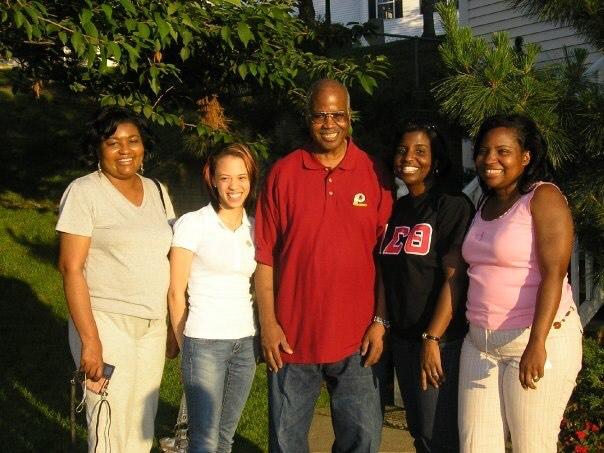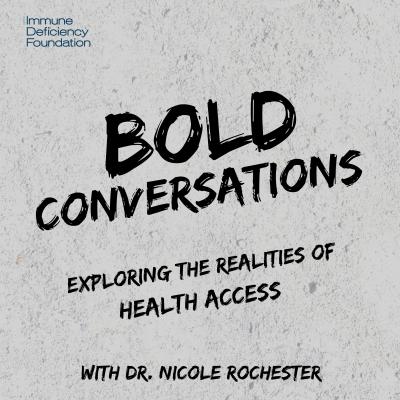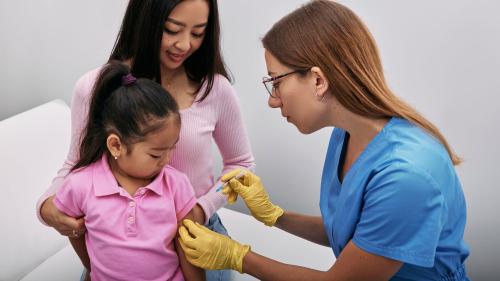
-
Understanding primary immunodeficiency (PI)

Understanding PI
The more you understand about primary immunodeficiency (PI), the better you can live with the disease or support others in your life with PI. Learn more about PI, including the various diagnoses and treatment options.
-
Living with PI
-
Addressing mental health
-
Explaining your diagnosis
- General care
- Get support
- For parents and guardians
-
Managing workplace issues
- Navigating insurance
-
Traveling safely

Living with PI
Living with primary immunodeficiency (PI) can be challenging, but you’re not alone—many people with PI lead full and active lives. With the right support and resources, you can, too.
-
Addressing mental health
-
Get involved

Get involved
Be a hero for those with PI. Change lives by promoting primary immunodeficiency (PI) awareness and taking action in your community through advocacy, donating, volunteering, or fundraising.
-
Advancing research and clinical care
-
Research Grant Program
-
Consulting immunologist
-
Diagnosing PI
-
Getting prior authorization
-
Clinician education
-
Survey research
-
Participating in clinical trials

Advancing research and clinical care
Whether you’re a clinician, researcher, or an individual with primary immunodeficiency (PI), IDF has resources to help you advance the field. Get details on surveys, grants, and clinical trials.
-
Research Grant Program
Dr. Nicole Rochester’s father struggled with many health problems including dementia, heart disease, diabetes, kidney disease, and obesity. When she and her two older sisters began caring for him and she found herself in charge of his medical care, she realized just how muddled management of his diseases had become. Prescriptions overlapped, diet and exercise were neglected, and information sharing between specialists didn’t occur.
“I felt like no one was looking at the big picture. No one was taking a step back. There were a lot of balls that were dropped, and I tried to fill in the gaps,” said Dr. Rochester.

Dr. Rochester accompanied her father to doctor’s appointments, and although he’d complain of specific health issues to family and friends, she found that he didn’t share those concerns with the doctor. Dr. Rochester asked the questions her dad avoided, sometimes much to the consternation of providers.
After a few visits to specialists identifying herself as only his daughter, Dr. Rochester decided to reveal to providers that she is a board-certified pediatrician. That fact changed how providers interacted with her and her father.
“It wasn’t until I announced that I was a physician that there was a change in posture and more of a desire to collaborate. My profession validated my conversations and concerns about my dad in a way that I wasn’t afforded when I was just his daughter,” said Dr. Rochester.
Eventually, Dr. Rochester and her sisters moved their dad into assisted living, where he received excellent care until his passing in February 2013.
The experience with her father planted the seed for Dr. Rochester’s shift from physician to professional health advocate and health access consultant. After 20 years of practicing as a pediatrician, Dr. Rochester established Your GPS Doc in 2017. Your GPS Doc is a business that helps aging individuals, those with chronic illnesses, and their family caregivers navigate the healthcare system.
In addition to serving as the CEO for Your GPS Doc, Dr. Rochester is a TEDx and keynote speaker, has an active presence on social media, and produces the YouTube show, Navigator Nuggets.
In December 2021, Dr. Rochester joined the IDF team as the consulting medical advisor for health access. Her contributions so far include being interviewed for an IDF podcast, “Opportunities for Young People of Color in Science,” producing two videos - “Five Questions to Ask Your Doctor” and “Five Tips for a Healthy 2022," and sharing a diversity presentation for IDF staff.
Interest in the field of medicine began early for Dr. Rochester. She remembers as a 7-year-old combing through a medical encyclopedia, fascinated with the human body and the illnesses that could arise.
“I used to spend hours looking through that book and memorizing the signs and symptoms of various conditions,” she said.
Teachers in Prince George’s County, where she attended school, encouraged her interest in math and science, and Dr. Rochester went on to earn a degree in biology from Johns Hopkins University. She obtained her medical degree from the University of Maryland School of Medicine in 1997 and completed her pediatric residency training at Children’s National Medical Center in Washington, D.C.

Being a Black woman in a white male-dominated profession presented its challenges, but Dr. Rochester said she addressed inequities with help from other people of color.
She recalls an experience during her time at the University of Maryland School of Medicine when white professors neglected to explain how social determinants affect the health of the Black population.
“The problem was that a few of the professors, in their lectures, focused on the statistics and left out the background, left a lot of it to the imagination. There was a natural assumption that maybe Black people aren’t as healthy, or they have to do better or try harder, and there were no conversations at all about the systems in place that led to those differences in health outcomes,” said Dr. Rochester.
Dr. Rochester and several of her Black medical school classmates brought these concerns to the university dean, a Black man.
“What I do remember vividly is that we had a voice. We met with the dean and others who were responsible for our education, and we were received warmly, and they made a commitment to look at the curriculum and what was being taught. They listened and they had a genuine desire to make things better,” said Dr. Rochester.
“So, I’ve definitely benefited from having fellow students, as well as mentors and teachers, who look like me, even if it’s a small number.”
In another case of health inequity, Dr. Rochester witnessed how doctors and senior medical residents minimized complaints of pain by children with sickle cell anemia. Sickle cell anemia is a rare genetic blood disorder that results in extreme pain when the malformed red blood cells make their way through the blood vessels. The disease primarily affects people of color and shortens a person’s life span.
“Many of the doctors underestimated the children’s pain,” explained Dr. Rochester.
While working as a pediatric hospitalist, Dr. Rochester gave monthly lectures on sickle cell anemia to medical students and pediatric residents at a community hospital where she worked.
“We talked about not only the pathophysiology of sickle cell disease but also the psychology and stigma and how the pain is ignored. It was sad to hear that it was the first time many of the third- and fourth-year medical students heard a lecture on sickle cell,” said Dr. Rochester.
Dr. Rochester parlays her patient advocacy into her role as CEO of Your GPS Doc. Many families consult with Your GPS Doc because they feel their loved ones aren’t getting the care they need in a hospital setting. Dr. Rochester reviews medical records, speaks with doctors and nurses, and acts as a liaison between the family and providers to improve care.
“I help families interpret the medical lingo, put it in lay terms, and ask questions, those same probing questions I asked of my dad’s care team. Have you explored all of the diagnostic possibilities? Have you explored treatment options? Is this the right hospital? Do they need a higher level of care?” explained Dr. Rochester.
“Sometimes the care being provided is exceptional and it’s just bad communication, and other times I find that care is not appropriate, and there are things that should have been done or need to be done.”
Dr. Rochester believes that health advocacy is an essential aspect of health access.
“There’s a lot of work to be done in healthcare, but that work is going to take time. Empowering and educating communities of color so they can stand up for themselves is an important part of the journey,” said Dr. Rochester.
“For decades, we’ve had this data available where we know that Black and brown communities have had worse outcomes, and it’s been accepted as the status quo. I’m excited about the focus on health disparities and health access. I hope this remains a focus. My hope is that health access remains at the forefront.”
Topics
Related resources
Sign up for updates from IDF
Receive news and helpful resources to your cell phone or inbox. You can change or cancel your subscription at any time.





The Immune Deficiency Foundation improves the diagnosis, treatment, and quality of life for every person affected by primary immunodeficiency.
We foster a community that is connected, engaged, and empowered through advocacy, education, and research.
Combined Charity Campaign | CFC# 66309




